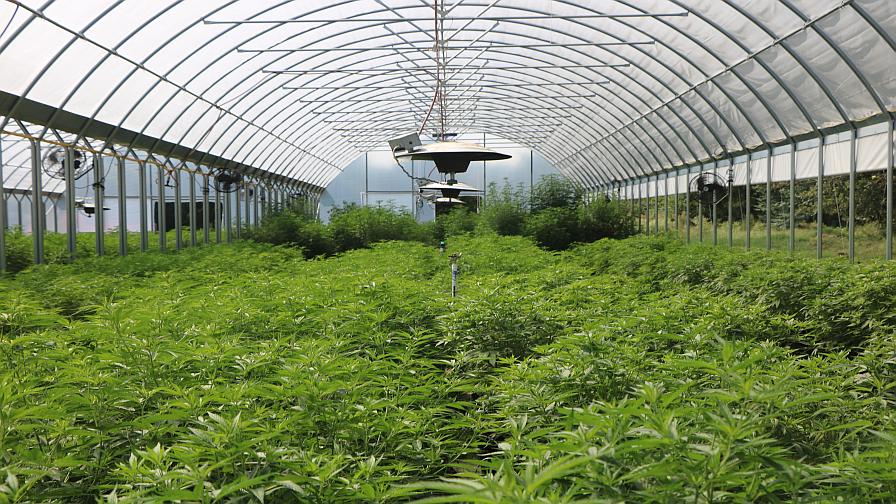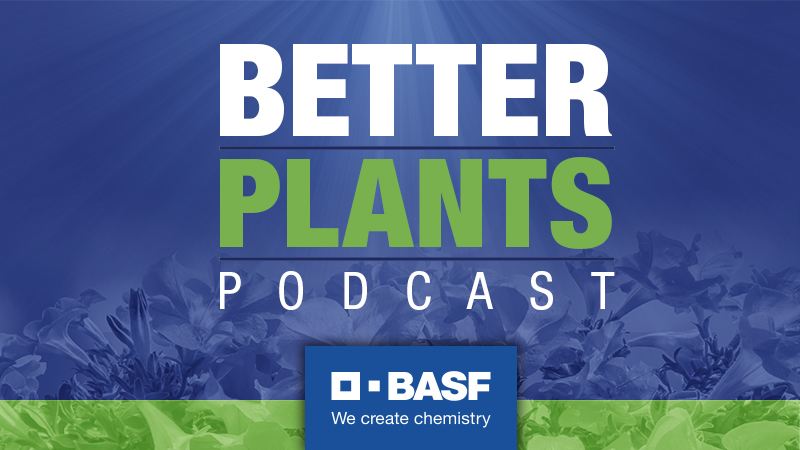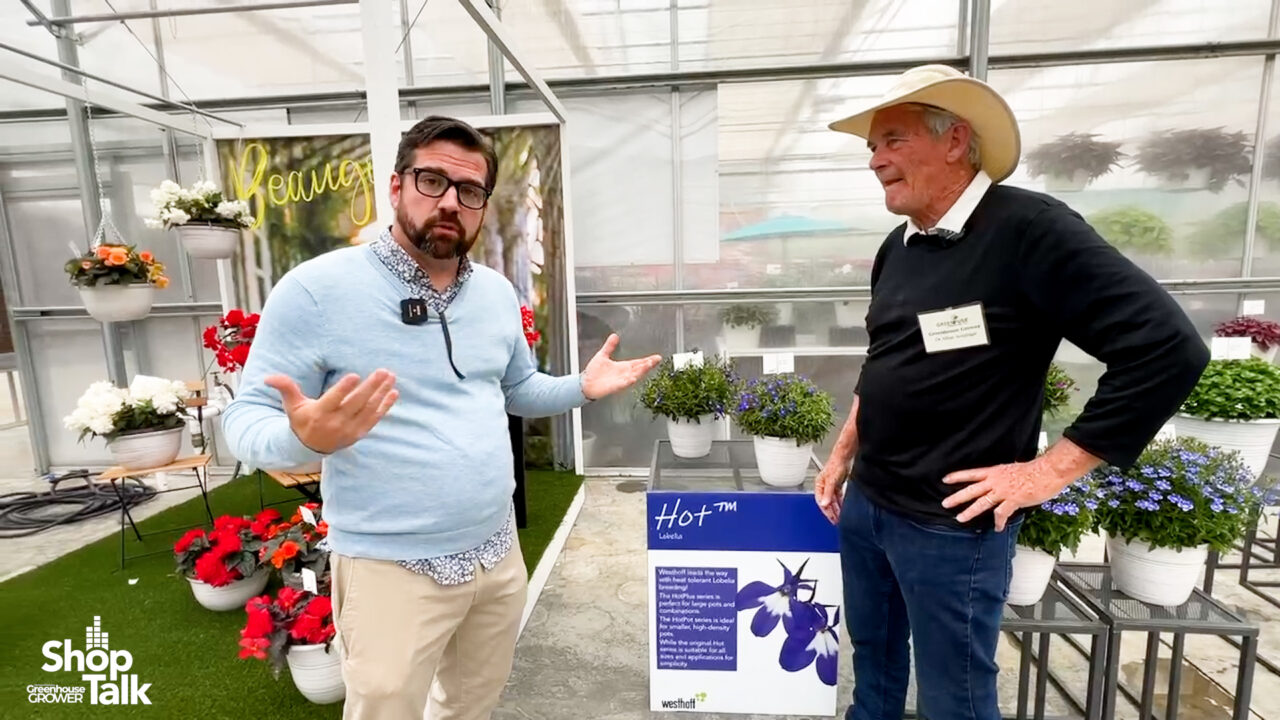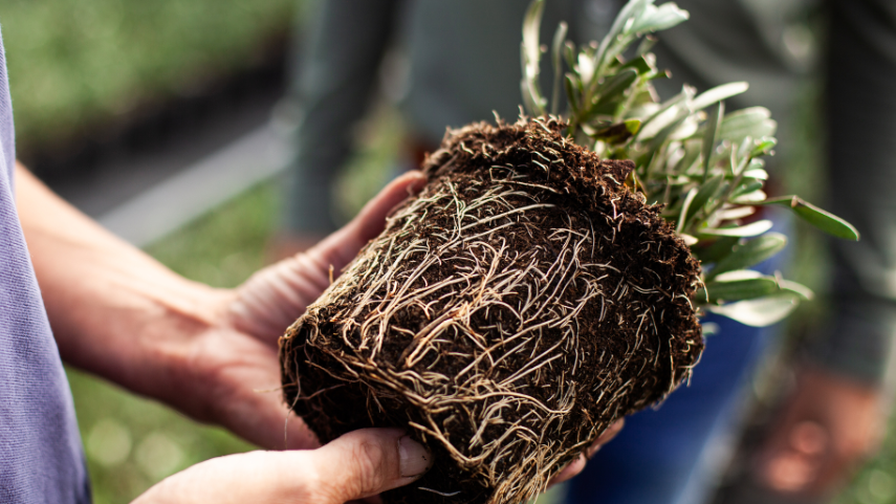Growing Green: Surveying On Sustainability
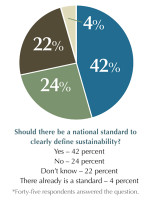
Does your greenhouse operation practice sustainability? How do you define it? What is your marketing message regarding sustainable practices implemented into your business?
Those are just a few questions we posed to growers in an online survey sent by e-mail last month. One hundred and sixteen growers responded over an eight-day period, representing 34 of the 50 states and parts of Canada. Respondent work titles included everything from owner to head grower to sales and marketing representative, and operations represented ranged in size from less than an acre to several hundred acres.
Twenty-seven questions were posed in all, and 54 respondents completed the entire survey. Questions were open ended, leaving the depth of each answer up to the respondent. Questions were also divided into three sections–the basics, production and marketing.
Exactly two-thirds of respondents answered “yes” when asked if their greenhouse operation practices sustainability. Thirteen percent report they do not practice sustainability, whereas the rest of respondents had completely unique answers.
Take this response, for example: “I don’t know what [practicing sustainability] really means,” the respondent wrote. “I’d like to, but right now this is a hobby business. I am trying to figure out what ‘the big boys’ are doing, and how I can adapt these principles so when I retire in a couple of years, I can make this hobby a real business.”
You’ll find some of our other findings–along with a few more standout responses–sprinkled throughout this story.
The Question: How do you define sustainability?
The Answers: No question resulted in such an assortment of answers as this one, but a handful of respondents seemed to agree that sustainability should mean environmentally friendly, socially responsible and economically feasible.
Standout Response: “To us, sustainability means producing plants with as little environmental impact as possible. The word ‘sustain’ means to support. We believe a truly sustainable operation would do its best to support the earth that we are growing on while supporting each other, our community and our businesses.”–Michelle Somero, owner of Serendipity Gardens; New Ipswich, N.H.
The Question: Describe your investment and the sustainable practices you’ve implemented at your operation.
The Answers: Fifty respondents answered the question, and the most common practices mentioned were the recycling of paper, pots and greenhouse film. Water conservation was another popular response, mostly through drip irrigation and runoff collection, and several growers mentioned they’ve made a commitment to biological control.
Standout Response: “We have created a system to reuse water from our fish tanks to water our plant crops. We offer a line of plants in biodegradable coir pots. We have an annual returns program where customers can receive credit on their accounts for bringing back annual plants in the fall. This reduces the shipping and potting resources we would otherwise use to bring in additional plant stock in the spring.”–Diane Ross, owner of Enery Water Gardens; Arvada, Colo.
The Question: How important are sustainable chemical and fertilizer options to your operation?
The Answers: Sustainable chemical and fertilizer options were important to about 78 percent of respondents. Of those who said sustainable options were not important, one grower mentioned cost was holding him back while another mentioned his operation was too small to make the adjustment. A couple of growers even mentioned they don’t use chemicals because they prefer to grow organically.
Standout Response: “Our production system relies on fertilization through irrigation. Without availability of economical water soluble fertilizers, we would have to change our entire mode of production.”–Sam Maupin, owner assistant of Cascade Cuts; Bellingham, Wash.
The Question: Do your customers value the sustainable practices you’ve implemented?
The Answers: An overwhelming majority responded “yes.” A few, however, responded “no.”
Standout Response: “I have never heard a customer use the word sustainable. Organically grown, yes; sustainable, no. I believe they recognize we practice sustainability, but we as a company have always used these practices, so now we have to do a better job at letting our customer know that these are sustainable practices.”–Kathie Hogeback, president of Northgate Greenhouses; Cincinnati, Ohio
The Question: Where do you market your operation’s sustainability story with customers and others?
The Answers: Most growers do market their operation’s story through their website, newsletters, the newspaper and other means. Some talk about sustainability at their operation in conversations, and about 10 percent say they don’t market any of their practices.
Standout Response: “On the greenhouse level, we don’t market. As teachers of native plant communities and as landscapers, we do it by discussing it with clients.”–Martha Oliver, co-owner of The Primrose Path; Scottdale, Pa.




